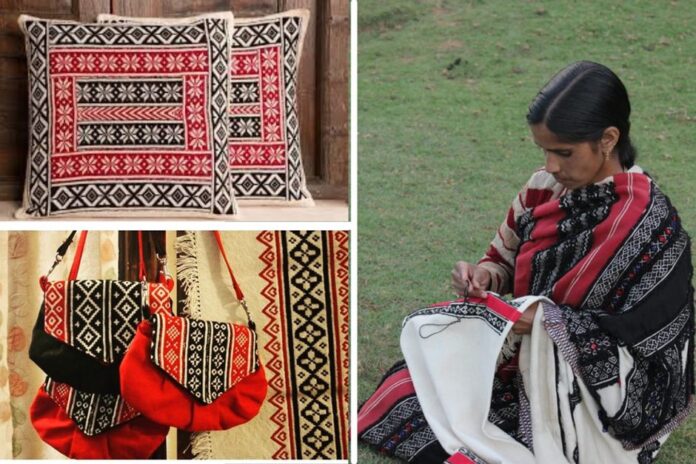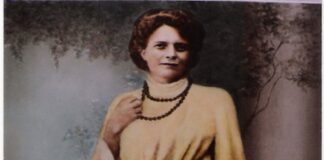The Toda tribe is an indigenous community that lives in the Nilgiri Hills of Tamil Nadu. They are one of the regions smallest and most unique tribal groupings. The Toda have a distinct culture, language, and social structure that distinguishes them from neighbouring groups. This community’s traditional craft is Toda embroidery. It is well-known for its geometric patterns, brilliant colours, and meticulous stitching. Toda embroidery is distinguished by its bright and geometric motifs. Squares, triangles, rectangles, and lines are frequently used in symmetrical compositions throughout the designs. These patterns are embroidered on a white cotton fabric backdrop with brilliant red and black wool threads, producing a stunning contrast.
By Dr Pravesh Kumar Gupta
The counted thread method is used in Toda embroidery. To ensure precision in stitch placement, the designs are constructed by counting the threads of the cloth. Toda embroidery stitches include the herringbone stitch, chain thread, and buttonhole stitch. The stitches are usually stitched on the reverse side of the cloth, giving the front a tidy and uniform appearance. Toda embroidery was traditionally done using wool threads on a handwoven cotton cloth called “mundu.” The red and black wool threads were collected from the Toda community’s sheep and buffaloes. However, since that commercial threads are available, contemporary Toda embroidery also employs synthetic or commercially made wool threads.
Preserving the art of Toda embroidery is a critical undertaking aimed at preserving the Toda people’s cultural legacy. Documentation, skill transmission, and marketing are all part of the effort to conserve Toda embroidery. Skill transfer is critical to the survival of Toda embroidery. Through apprenticeships or training programmes, experienced Toda craftsmen pass on their skills and practices to younger members of the community. The art form is maintained alive and may thrive through passing on these talents.
Sheela Powell, the creator of the social enterprise Shalom Ooty, is an admirer of Toda women and their distinctive Toda embroidery. She picked the name ‘Shalom’ because it means peace in Hebrew, which is exactly what Sheela hoped to empower oppressed Toda women with via financial independence.
Shalom Ooty is assisting in the preservation of the rare and traditional Toda embroidery, which got the Geographical Indication marking in 2013. Sheela launched a business in Ooty in 1992, originally selling exclusively domestic products produced by local Ooty women. However, ladies from the Toda hamlet started contacting Sheela to offer their hand-embroidered shawls for sale.
Today, Shalom Ooty works with over 250 Toda women who are unable to sell their items independently owing to a language barrier and a lack of commercial knowledge. According to Sheela, “previously, they embroidered shawls that only wealthy tourists would buy.” We taught them how to manufacture little items like clutches, penny wallets, and phone covers. Those were an instant success, and Toda women began earning money to pay for their children’s education or purchase gifts for them. Shalom Ooty has been teaching the ladies how to make Toda embroidered utility objects since there is a growing need for them. She further adds, “We’re also including more recent items in our collection, such as skirts. Additionally, we recently began selling online, and that is gradually building up. Shalom Ooty also conducts business online and through trade shows and fairs.”
In addition to assisting these tribal women in achieving economic independence, Sheela’s efforts support the preservation and promotion of the Toda tribe’s indigenous art. Tribal groups in India are extremely vibrant and have a very rich culture. The government is doing a lot to support these communities’ socioeconomic growth and to aid in the preservation of their traditional arts and cultures. Individual efforts, like Sheela’s, are also noteworthy since they can actually affect people’s lives.
This article first appeared in www.vifindia.org and it belongs to them.








